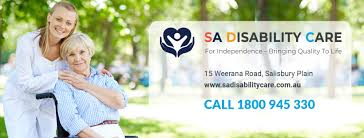Adult Daycare Services and Assisted Living
To be a disability care employee requires passion and dedication. To enable disabled people to live a normal, independent life, and to achieve their goals with the greatest ease, there are special treatments. The person providing support for the disabled person must have a positive outlook on life and work. They shouldn’t complain about the salary, hours, or working environment.
Adult Daycare Services and Assisted Living
The right candidate should have strong qualifications and a track record of work experience when applying for a job as a disability care worker. An applicant who has successfully obtained a degree in social services or a related field will be more likely to get hired. The applicant should not have any criminal or other records that could make him/her a liability. Prior to getting the part time job, it is important for an aspiring disability care employee to have a full understanding of their job duties and responsibilities. This will help them In home care services Melbourne their supervisors, as well as their fellow workers.
Adult Daycare Services and Assisted Living
A disability care worker is responsible in many ways, including cleaning, cooking, washing, dressing, grooming, and helping patients with their daily activities. This means that the care giver will need to do various tasks such as cleaning up, cooking, cleaning and even buying medications. The care giver must also assist the patient with daily activities such as dressing, bathing, and walking. There are many home care agencies that provide 24-hour assistance and home care for disabled people.
Adult Daycare Services and Assisted Living
- Disability carers need to be able to communicate well, have good listening skills, be able to understand others, and have a sense of humor. They also need to have strong social skills, cleanliness, and other personality characteristics that are important in any profession. When hiring the services of a respite carer, one should ensure that the staff members have been trained properly to handle different patient problems. They should be friendly and interact freely with the patients. Respite carers must be able to communicate with the patient and their loved ones. They should be able to adapt and give sincere advice without being condescending.
The most important requirement for a caregiver is his or her willingness to provide disability support services to disabled adult loved ones. The work of the caregiver can either be completely voluntary or completely involuntary depending upon his feelings and gut feeling. However, caregivers must be able to fulfill the patient’s needs effectively and completely if they choose to do so. The caregiver should consider hiring a live-in caregiver if the disabled adult is able to bathe and does not require constant medical attention.
Professionally trained, live-in carers can take care of the patient’s needs and participate in their day-to-day life. They help disabled loved ones to do their daily living activities. You will need to assist your loved one with daily living activities such as eating, bathing. The carer is also expected to help the patient with his personal hygiene such as washing, dressing, brushing the teeth and using the toilet.
In order for caregivers to be considered as qualified professionals for live-in or assisted care, they should have completed a certified caregiver training course and be licensed or eligible under state law to provide personal care. Many companies offer disability support services. They can be reached to offer a free assessment or to refer to registered caregivers. These companies often offer short-term assessment programs for free and then refer their clients to local caregivers. A few companies also offer customized support services for patients with a wide range of needs, including those who are frail, disabled, elderly, or children.
Another important service that a home care agency can provide is coordinating and arranging for necessary equipment or supplies for a disabled family member or loved one. Many people with learning disabilities need specialized equipment and devices to live their daily lives, such as wheelchairs or crutches. Some learning disabilities may even limit a person’s ability to perform simple tasks like dressing themselves or eating food. The caregivers also help their client to get dressed, use the bathroom, take medication, and carry out basic daily activities. These caregivers are certified and trained to perform medical or occupational exams, provide protective equipment or supplies, as well as transport their client from their home to the doctor’s or nursing facility.
https://www.youtube.com/watch?v=SFyxGJfMzU0
